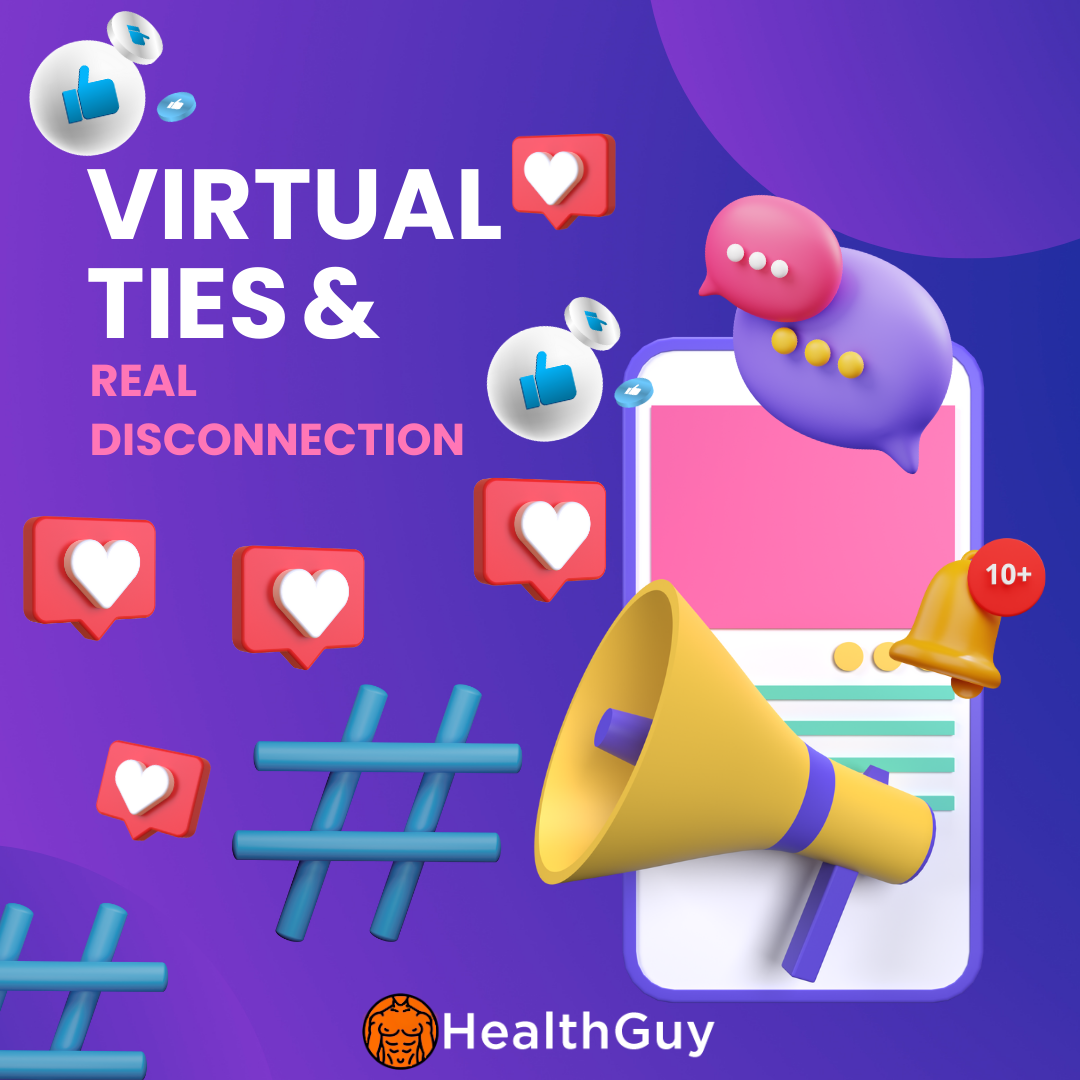
Virtual Ties and Real Disconnection: Understanding the Social Media Paradox
In today’s world, social media has become an integral part of our lives. We use platforms like Facebook, Twitter, Instagram, and TikTok to connect with friends, share our experiences, and stay updated with the latest news and trends. Social media has revolutionized communication, making it easier than ever to connect with people from all corners of the globe. However, beneath the surface of this digital connectivity lies a paradox: social media simultaneously brings people together and isolates them in once unimaginable ways.
The Connectivity Paradox: Bringing People Together
One of the most significant advantages of social media is its ability to connect people across vast distances and diverse backgrounds. It has broken down barriers, allowing individuals to communicate and form relationships with others who share similar interests or experiences. In the pre-social media era, connecting with someone from another country or culture was a rarity, but now it’s just a click away.
Social media fosters a sense of community by creating virtual spaces where people can come together and bond over shared hobbies, beliefs, or causes. These communities provide support, encouragement, and a sense of belonging, which can be especially valuable for those who might feel isolated in their real-world surroundings.
Furthermore, social media has been instrumental in promoting social and political movements. Activists and advocates can use these platforms to raise awareness, mobilize supporters, and spark discussions about critical issues, creating a global impact.
The accessibility and ease of sharing information on social media have also revolutionized education and learning. People can now access a vast array of knowledge and perspectives, from online courses to educational content shared by experts in various fields.
The Isolation Paradox: The Dark Side of Connectivity
Amidst all the positive aspects of social media, a darker side exists—one that breeds feelings of isolation and loneliness. Paradoxically, the more connected we become digitally, the more disconnected we often feel in the real world.
Firstly, social media can lead to a phenomenon known as “social comparison.” As we scroll through carefully curated feeds of other people’s lives, we often end up comparing our own lives to their seemingly perfect ones. This constant comparison can erode self-esteem and trigger feelings of inadequacy, leading to a sense of isolation and disconnection from others.
Secondly, the very nature of online communication can create a sense of distance and impersonality. Emojis and abbreviations may help us express emotions quickly, but they lack the depth and nuance of face-to-face interactions. Misunderstandings and conflicts can arise easily, and the lack of physical presence may make it harder to empathize with others’ emotions.
Moreover, the addictive nature of social media can lead to excessive usage, further exacerbating feelings of isolation. Spending long hours on social media platforms can replace meaningful real-life interactions, making it challenging to form genuine connections.
Additionally, cyberbullying and online harassment are prevalent on social media. The anonymity provided by the internet can embolden individuals to engage in harmful behaviours, causing emotional distress and isolating victims from their peers.
Balancing the Paradox: Navigating Social Media Mindfully
Recognizing and addressing the social media paradox requires a mindful approach to our digital interactions. Here are some tips for using social media in a way that enhances connectivity while minimizing feelings of isolation:
- Limit screen time: Set boundaries for the time you spend on social media to prevent it from taking over your life. Engage in offline activities that nurture real-world relationships and interests.
- Cultivate meaningful connections: Instead of striving for a large number of followers, focus on building genuine connections with a smaller circle of individuals who share your values and interests.
- Be mindful of social comparison: Remind yourself that social media often showcases the highlights of people’s lives and not the full picture. Avoid comparing your life to others and focus on personal growth and well-being.
- Practice empathy and kindness: Be mindful of your online interactions, and treat others with respect and empathy. Think before you post or comment, considering the impact your words may have on others.
- Balance virtual and real-world interactions: Make time for face-to-face interactions with friends and family. Engaging in meaningful conversations and shared activities in person can strengthen relationships.
- Stay informed and critical: Be aware of the potential for misinformation and echo chambers on social media. Fact-check information before sharing, and seek diverse perspectives to avoid getting trapped in a narrow worldview.
In conclusion, social media is a powerful tool that can bring people together, foster community, and drive positive change. However, it also poses risks of isolation, loneliness, and disconnection. By using social media mindfully, we can harness its benefits while mitigating its adverse effects, ensuring that connectivity and isolation do not become an irreconcilable paradox in the digital age.
